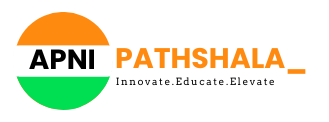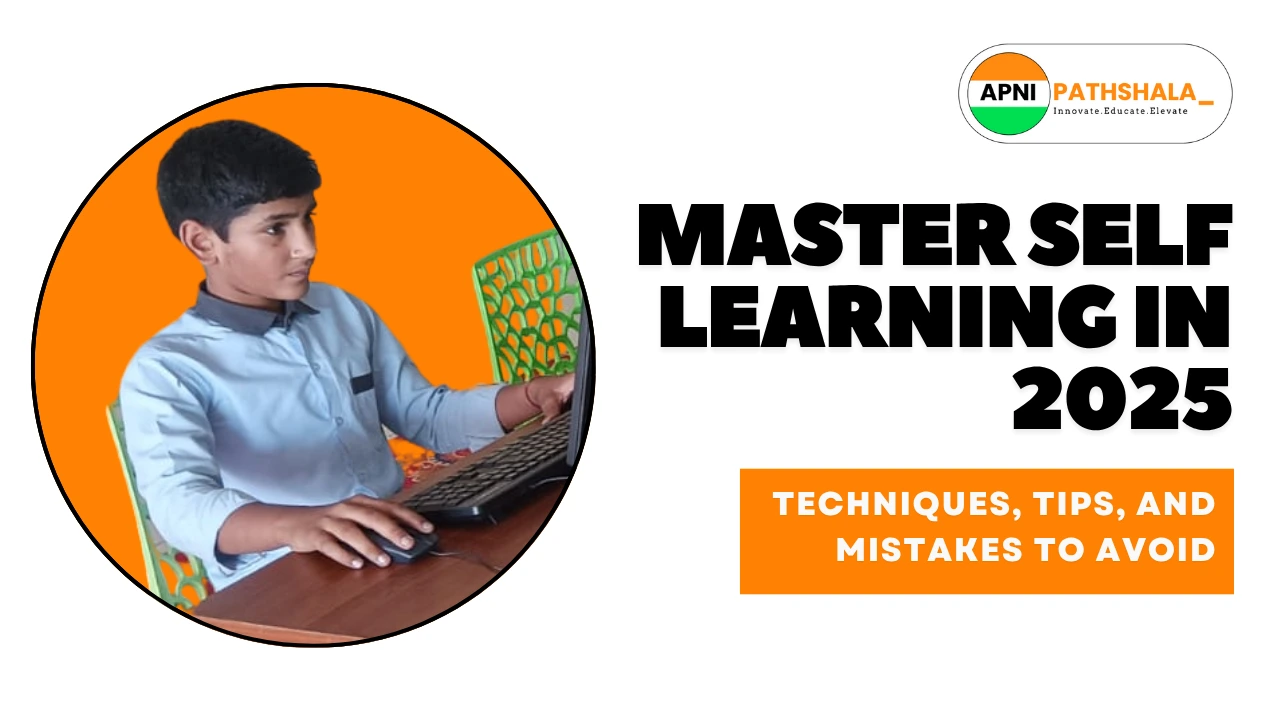Chalo Seekhein! (Let’s Learn)
Introduction
Are you a student looking to improve the way you learn by yourself? Then you’re in the right place.
Many students today feel misunderstood by parents and teachers who might not fully grasp the challenges they face. But there’s one person who truly understands your needs: you. In 2025, being able to teach yourself effectively is essential. You already have many free tools, websites, and resources; what you need now is the right approach and consistent habits.
“The illiterate of the 21st century will not be those who cannot read and write, but those who cannot learn, unlearn, and relearn.” — Alvin Toffler
What is Self-Learning?
Self-learning means choosing what you want to learn, setting your own goals, and finding your own methods. It’s about independence.
For instance, if you’re interested in photography, you might watch online tutorials, practice taking photos, edit them, and gradually improve. This entire process, guided by your curiosity and effort, is self-learning.
Essentials for Better Self-Learning
Before diving into methods, strengthen these essential habits:
- Sleep well (7–8 hours): Rest improves memory and concentration.
- Eat healthy: Fruits, nuts, and water sharpen your mind.
- Have a quiet study area: A clean, peaceful space boosts productivity.
- Notebook and pen: Writing notes by hand helps memory retention.
- Build your focus: Short daily meditation or deep breathing can enhance your concentration.
Where to Begin and When to Pause
Getting Started
- Pick an interesting topic: Choose something you genuinely enjoy.
- Set achievable goals: Start small (e.g., creating a poster in Canva, typing 30 words per minute).
- Utilize reliable, free resources: Start with platforms like YouTube, ChatGPT, or Google Gemini.
- Break topics into smaller tasks: Daily, consistent practice beats rushing through.
- Track your progress: Keep yourself accountable using a simple journal or calendar.
When to Take a Break
Pause learning if:
- You’ve completed a goal and need reflection.
- You’re only passively watching videos without practicing.
- You’re bored or tired, try something new or rest.
- You feel overwhelmed, take a break, then come back refreshed.
10 Effective Self-Learning Techniques (+3 Bonus Tips)
1. Pomodoro Technique
Study for 25 minutes, then take a 5-minute break. After four cycles, take a 15-minute break. It boosts productivity without burnout.
Tip: Use your phone timer or Pomofocus.io.
2. Feynman Technique
Learn a concept, then explain it simply, as if teaching a child. This reveals areas you need to review.
Tip: Test your explanation by teaching a friend or using ChatGPT to verify clarity.
3. Mind Mapping
Start with a central idea and branch out into related subtopics. This visual method helps connect ideas clearly.
Tip: Begin on paper, then use digital tools like Xmind or MindMeister.
4. Cornell Note-Taking Method
Divide your page into three parts: keywords (left), detailed notes (right), and summary (bottom). This structured method aids revision.
Tip: Review notes within 24 hours for best results.
5. Active Recall
After studying, close your books and try to recall everything you learned without peeking. It helps form stronger memory connections.
Tip: Create digital flashcards using notegpt.io.
6. Spaced Repetition
Review material at gradually increasing intervals (day 1, day 3, day 7). This method improves long-term memory.
Tip: Use RemNote to organize your revision schedule.
7. Learning Logs/Journaling
Write down daily what you learned and any confusion. Journals reveal patterns and improve reflection skills.
Tip: End each entry with a question to guide your next session.
8. Self-Testing
Create quizzes or questions about the material to test your knowledge. It reveals true understanding.
Tip: Focus revision only on questions you answered incorrectly.
9. Deep Work Sessions
Choose one subject and focus intensely without distractions for 45–90 minutes. It’s a powerful way to achieve a deeper understanding.
Tip: Turn off phone notifications or use the Forest App.
10. Teach What You Learn
Explain the learned topic to someone else or aloud to yourself. Teaching strengthens understanding.
Tip: After teaching, identify unclear points. Summarize your teaching clearly and verify it using Google Gemini.
Bonus Techniques for Advanced Learners
Chunking
Break large topics into small, manageable pieces and tackle one at a time.
Tip: Mark each chunk as a mini-goal and tick them off when completed.
Interleaving
Mix two or three related subjects during your study sessions instead of focusing on one for hours. It enhances learning adaptability.
Tip: Pair related subjects (e.g., Math and Physics).
Reflection Time
Spend a few minutes after each session reflecting on successes and areas for improvement.
Tip: Answer these questions:
- What did I learn?
- What was confusing?
- What will I do next?
Common Mistakes to Avoid in Self-Learning
- Phone Addiction: Limit phone distractions during study sessions.
- Procrastination: Start small, 5 minutes is enough to build momentum.
- Perfectionism: Progress matters more than perfection; start immediately.
- Gaming Addiction: Schedule gaming as a reward after study sessions.
- Lack of Sleep: Prioritize 7–8 hours of sleep for better learning.
- Cluttered Study Space: Keep your study area neat for clear thinking.
Conclusion
Let’s quickly recap what you’ve learned: You now know exactly what self-learning is, effective methods to use, and common pitfalls to avoid.
Self-learning is not just about studying alone. It’s about becoming independent, adaptable, and confident in your ability to grow. Choose one habit to build this week. Don’t wait for perfection just start.
What’s one self-learning habit you want to start today? What’s been stopping you?
Share your thoughts in the comments; your answer could inspire others, too.
Read more helpful blogs like this –Click here! Want to know how a Taxi Driver’s Son Learned Digital Skills Without his own PC? Click here!


5 Comments
Never imagined Self learning to be this helpful in nature if done correctly.
Self-learning in 2025 is essential! It builds independence, sharpens skills, and makes studying more effective. A must-try for every student!
Wow, this made self-learning feel so simple and fun. I’m excited to start now!
SELF learners are best
I myself, as a student, really think these points are very effective, as I started self-learning, and it has been 2-3 years now, and it helps me a lot to learn something on my own when an expert/experienced person is not available.